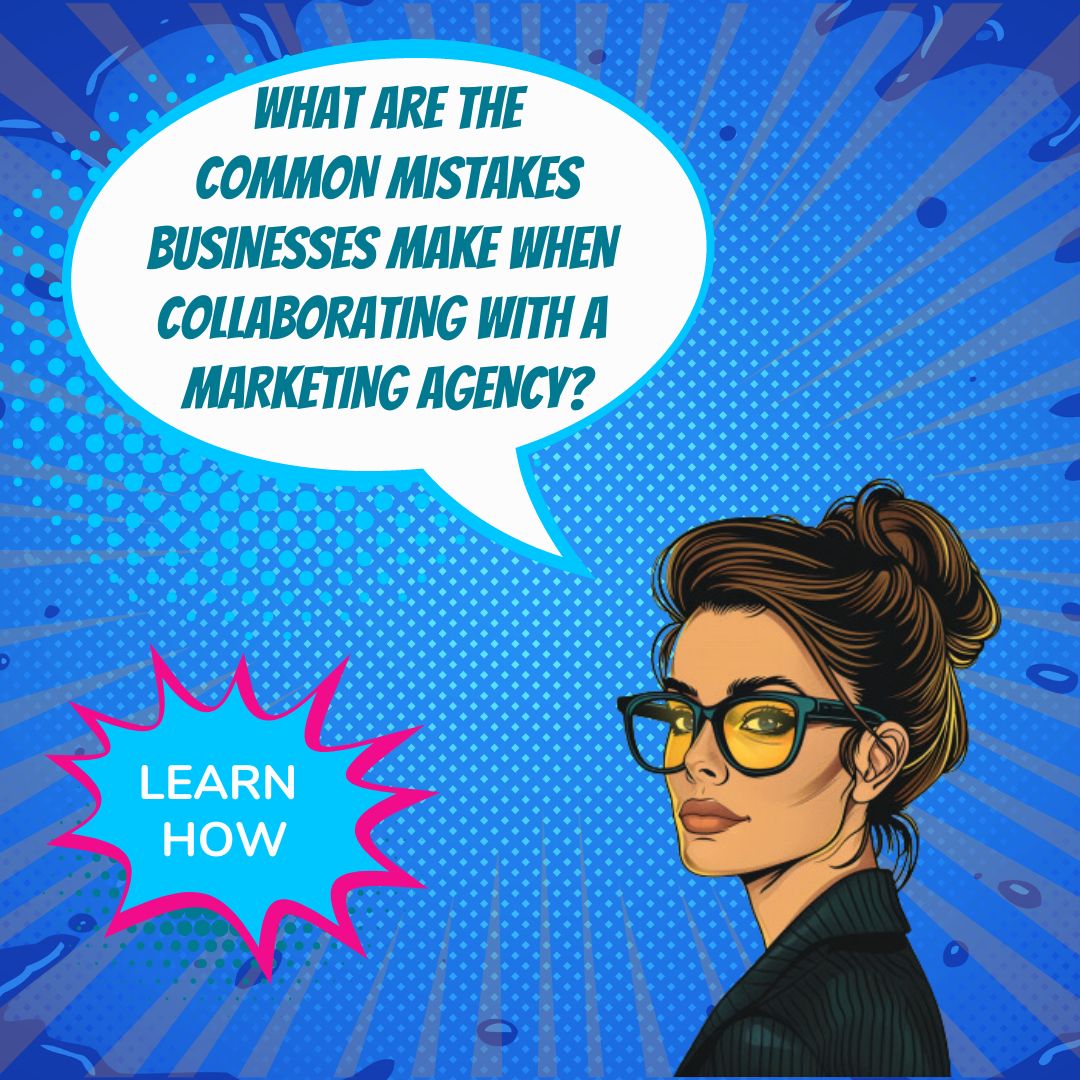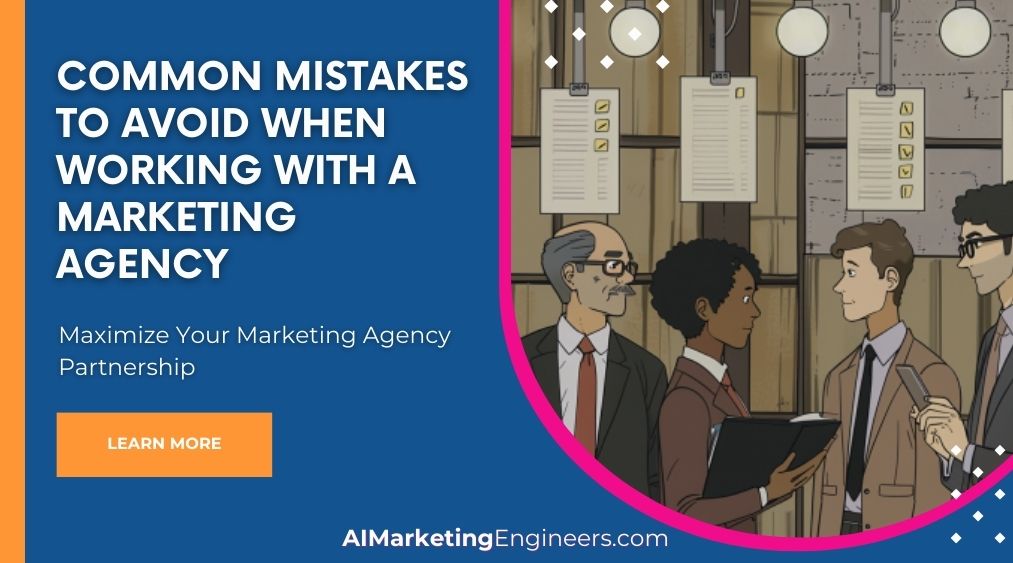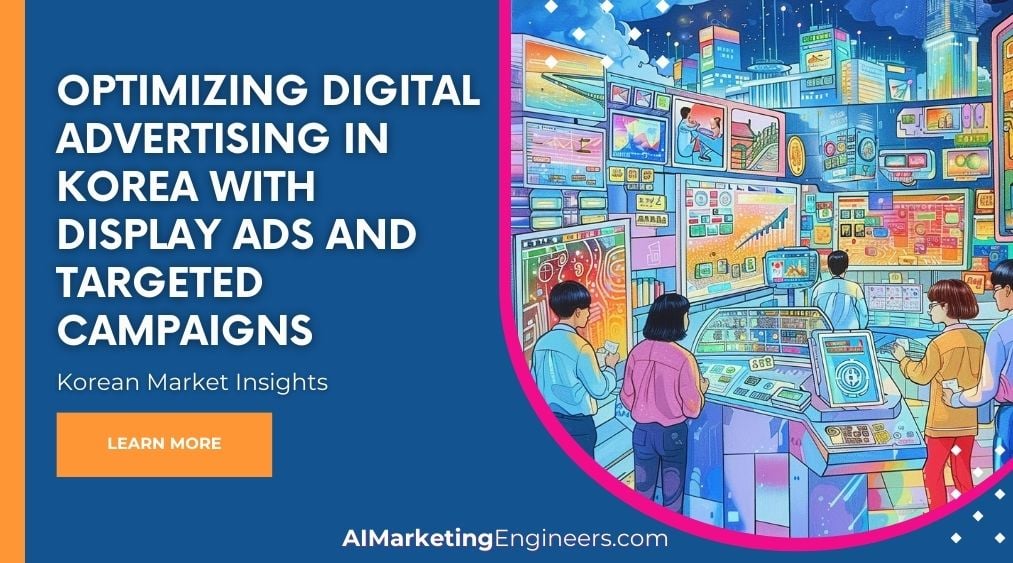Key Takeaways
✅ Clear Communication and Goal Setting: Ask questions early and frequently to ensure mutual understanding. Set clear, measurable, and realistic goals to help track progress and avoid misunderstandings.
✅ Understanding Agency Services and Capabilities: Know the services and capabilities of your marketing agency to set the right expectations. Be transparent about your numbers and tracking metrics to enhance campaign effectiveness.
✅ Learning from Campaigns and Celebrating Successes: Analyze missed goals to gather lessons for future campaigns. Celebrate successes together to foster a stronger working relationship and motivate the agency to deliver exceptional results. 
Introduction
Are you making avoidable mistakes when working with your marketing agency? Understanding common pitfalls can save your business time, money, and frustration. When working with a marketing agency, it’s crucial to avoid scaling mistakes like rushing forward without clear goals, or not listening and talking too much which can lead to missed opportunities. This article dives into these issues and more, offering solutions to help you drive revenue, ROAS, and ROI. Discover insightful perspectives, modern trends, and actionable strategies to maximize your marketing efforts.
Top Statistics
| Statistic | Insight |
|---|---|
| 52.4% of respondents in a survey said they have made the mistake of trying to reinvent the wheel in marketing. | This highlights the common error of not leveraging existing successful strategies. It's often more effective to adapt proven methods rather than starting from scratch. |
| 11 common mistakes digital marketing agencies make include managing multiple clients from the same Google Ads account and having a pricing structure that isn’t profitable. | Avoid these pitfalls to ensure that your agency can deliver personalized, profitable services to each client without conflict of interest or financial strain. |
| Agency staffers spend around four or five hours per client each month reporting on digital. | Effective reporting is crucial for transparency and accountability, but optimizing time spent can enhance productivity. |
| 15 common deadly mistakes in data analysis for growth marketers include vague objectives, sampling bias, and lack of statistical significance. | Clear goals and accurate data analysis are key to successful marketing strategies. Avoiding bias and ensuring statistical rigor can guide better decision-making. |
| Common digital marketing mistakes include not knowing your audience, neglecting mobile optimization, and underestimating the power of content. | Understanding your audience and optimizing for mobile can greatly impact engagement and conversions. High-quality content remains a powerful tool in the marketing arsenal. |
Scaling Mistakes
Scaling a business can be as tricky as it is necessary. Scaling too soon, without a thorough assessment of internal investment risks and understanding competitors' growth strategies, can spell disaster. It is essential first to define immediate goals and mission before setting sights on expansion. Without long-term sustainability considerations, companies risk burning out their resources and credibility.
Not Listening and Talking Too Much
A common mistake in sales and client relations is talking too much and not listening enough. Understanding each customer's needs is critical to providing personalized recommendations that resonate. Teams should be encouraged to listen more and ask open-ended questions to genuinely engage with leads, turning conversations into meaningful exchanges.
Offering Too Much at a Low Cost
In an attempt to attract clients, agencies sometimes offer too much at a low cost, ultimately harming their reputation. This approach generally attracts lower-paying clients, which isn't sustainable in the long run. Instead, try exploring value-added promotions like free gifts, tutorials, or bonus features, which can create a better perception and attract high-value clients.
Making Promises You Can’t Keep
Overpromising and underdelivering is a recipe for reputation damage. It's far better to be realistic about what can be delivered in terms of both quantity and quality. Communicating limitations upfront helps manage expectations and avoids client disappointment, fostering a trust-based relationship.
 Hiring Too Many People, Too Fast
Hiring Too Many People, Too Fast
Expanding your team without a strategic hiring roadmap is fraught with risks. Prioritize roles that add immediate value to the company and ensure that new hires go through a thorough onboarding process. Rapid expansion without planning can lead to inefficiencies and a dilution of company culture.
Lack of Market Alignment
Growing a business too quickly without understanding market trends and the needs of your target audience is a cardinal sin. Balancing growth with careful planning and employee support ensures that the company remains aligned with market demands while delivering high-quality services consistently.
Skipping the Planning Stage
Rushing into projects without proper planning can lead to costly errors. Include essential elements in the planning stage, such as focusing energy and resources, and create a comprehensive roadmap for success. A well-thought-out plan is like a GPS for your business, providing direction and mitigating risks.
Neglecting the Creative Brief
Skipping or rushing the creative brief leads to expensive mistakes. Ensuring the brief is comprehensive but not overloaded with unnecessary details is crucial. A well-crafted creative brief serves as a guiding document, aligning everyone’s efforts and expectations.
Forgetting About the Financial Department
Neglecting the financial aspects of projects can result in severe setbacks. Effective financial management ensures that the company remains profitable and can sustain its operations. Always incorporate financial oversight in every project to avoid unforeseen economic issues.

Multiple Clients in the Same Google Ads Account
Managing multiple clients from the same Google Ads account can lead to billing and account-level issues. Using a My Client Center (MCC) account ensures that each client has their own ad account, thereby avoiding such complications. It's a simple move for a more organized and professional handling of advertising portfolios.
Not Setting Clear Expectations with Clients
Setting clear expectations and goals with clients is non-negotiable. Ensuring clients understand what to expect and what they will receive creates transparency and builds trust. A well-informed client is usually more satisfied and less likely to have grievances.
Poor Client Onboarding Experience
Clients’ first impressions can be lasting. A poor onboarding experience can lead to dissatisfaction right from the start. Utilizing powerful intake forms and client portals for effective onboarding helps in setting a professional tone and streamlines the transition for new customers.

AI Marketing Engineers Recommendation
Recommendation 1: Set Clear Goals and Expectations from the Start: The absence of concrete goals is a prevalent misstep when collaborating with a marketing agency. According to the Digital Marketing Institute, over 50% of businesses face project delays due to unclear objectives. By establishing specific, measurable goals upfront, you ensure both parties are aligned and can streamline the entire marketing process, thereby avoiding costly misunderstandings and inefficiencies.
Recommendation 2: Understand and Utilize Data Analytics: One major error is neglecting the power of data analytics. Trends show that marketing campaigns leveraging data have a 20% higher ROI compared to those that don’t. Staying abreast with current analytics tools and understanding the metrics that matter can help you better gauge your campaigns’ effectiveness. Partner with agencies that prioritize data-backed strategies, ensuring your campaigns are consistently optimized for maximum impact.
Recommendation 3: Maintain Regular Communication: A common pitfall is the lack of ongoing dialogue. According to a HubSpot survey, 74% of clients see significant project improvements when there's frequent communication. Use tools like Slack or Asana to stay in touch regularly, discuss progress, and address any issues promptly. This practice is crucial for fostering a transparent, collaborative environment, thus preventing potential setbacks and ensuring continuous alignment between your business goals and the agency’s efforts.
Relevant Links
- Revolutionize Your Digital Marketing with AI
- Essential Key Factors for Campaign Goals
- Boosting Ad Campaigns with Ad Rotation
- Maximize ROI with Ad Spend Efficiency
- Harnessing User Behavior Data for Marketing
Conclusion
Navigating the complexities of working with a marketing agency is fraught with potential pitfalls, but being aware of common mistakes can make all the difference. Scaling too soon without a clear strategy not only risks financial instability but also undermines long-term growth. It is crucial to define immediate goals and consider sustainable practices before making ambitious moves.
Equally important is the balance between listening and talking. Engaging leads effectively means personalizing your approach and understanding their unique needs. At the same time, overpromising and underdelivering can tarnish an agency’s reputation, making it vital to manage expectations realistically from the outset.
The temptation to offer services at a low cost should be resisted in favor of value-added promotions that enhance client relationships. Additionally, rapid expansion without a strategic hiring roadmap can lead to operational headaches. Aligning your growth strategies with market trends and thorough planning ensures you stay relevant and efficient.
Skipping critical stages like the creative brief or neglecting the financial department can derail projects before they even begin. Finally, providing a poor client onboarding experience or managing multiple clients from a single Google Ads account can lead to dissatisfaction and operational issues. By setting clear expectations and utilizing effective tools for client management, agencies can build stronger, more satisfying partnerships.
In conclusion, mastering these aspects not only safeguards your agency from common pitfalls but also sets the stage for sustained success. As you move forward, keep these insights in mind to foster a thriving, resilient marketing agency.
FAQs
Question 1: What are some common mistakes marketing agencies make?
Answer:
- Focusing on revenue instead of profitability, not providing enough visibility to clients, and prioritizing creativity over operational excellence.
- Hiring too many people too fast, overworking the existing team, micromanaging, and lacking market alignment.
- Managing multiple clients from the same Google Ads account, using broad match keywords without negatives, and neglecting client communication.
Question 2: Why is it important to avoid these mistakes?
Answer: These mistakes can lead to financial losses, client dissatisfaction, and damage to the agency's reputation. They can also hinder growth and success in the long run.
Question 3: How can agencies balance creativity and operational excellence?
Answer: By focusing on both creative practices and business management aspects, agencies can ensure they provide high-quality services while maintaining operational efficiency.
Question 4: What are the consequences of rapid growth without a strategic plan?
Answer: Rapid growth without a plan can lead to a mismatch of skills, diluted company culture, and increased overhead without proportional revenue growth. It can also result in poor client satisfaction and a lack of market alignment.
Question 5: How can agencies differentiate themselves in a crowded market?
Answer: Agencies can differentiate themselves by identifying their unique value proposition and leveraging it to stand out. This can be achieved by focusing on specific services where they have expertise rather than offering all services under the sun.
Question 6: How can agencies ensure effective client communication?
Answer: Agencies should communicate with clients proactively, providing timely updates on project progress to ensure clients understand how their money is being spent.
Question 7: What is the importance of strategic hiring and onboarding?
Answer: Strategic hiring and onboarding are crucial to maintaining company culture and operational efficiency. Agencies should prioritize roles that add immediate value and ensure a thorough onboarding process.
Question 8: How can agencies avoid overreliance on platform specialization?
Answer: Agencies should diversify their services and not rely too heavily on a single platform. This can help mitigate risks associated with platform changes and ensure long-term growth.
Question 9: What is the significance of project management in agency operations?
Answer: Effective project management is essential for delivering projects on time and within budget. Agencies should prioritize building dedicated project management teams to ensure smooth project execution.
Question 10: How can agencies ensure they are delivering high-quality services?
Answer: Agencies should focus on delivering high-quality services by prioritizing client satisfaction, investing in client services and account management, and ensuring they have the necessary expertise and resources to deliver on their commitments.

Academic References
- Slick Raven. (2023). 3 Biggest Mistakes Marketing Agencies Make. This article discusses the top three mistakes marketing agencies tend to make, such as lack of strategy, poor resource allocation, and insufficient lead qualification.
- Lauren Nzbee. (2024). 10 Marketing Mistakes Most Agencies are Regularly Making. The study reveals frequent errors by marketing agencies, emphasizing on the importance of strategic planning and effective resource use.
- Growbo. 9 HUGE Mistakes Digital Marketing Agencies Make—Do You Too? An insightful piece that enumerates nine critical mistakes digital marketing agencies often make, stressing the need to align with market trends and client needs.
- Agency Analytics. (2024). 7 Agency Growth Mistakes to Avoid When Scaling Fast. This source explores the pitfalls of rapid and unplanned growth in marketing agencies, underlining the potential issues around skills mismatch and company culture dilution.









